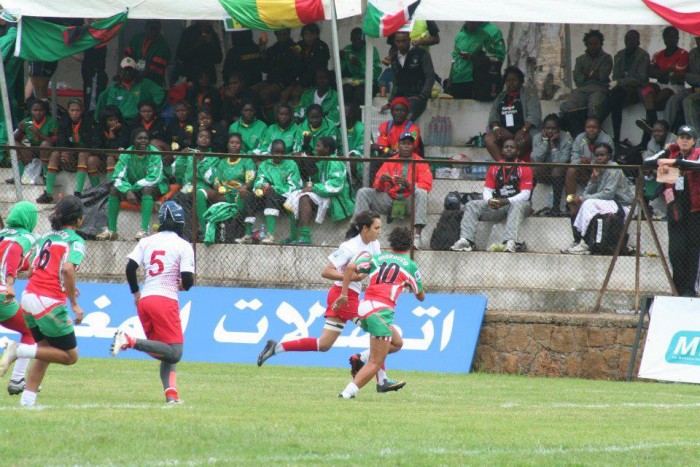Controversy over African Sevens
At the end of last month it was announced that Morocco had declined the opportunity to host the 2014 CAR African Sevens championship in March. Instead the tournament will be held in Kenya in the second week in April.
Published by John Birch, February 7th, 2014
3 minute read

Action from last year's tournament
So far so uncontroversial. Indeed, keeping the event on the Mediterranean coast for the third year running, and returning the tournament to Morocco when they had only hosted the event in 2012, had already seemed to be an odd decision, especially as it made participation by southern African teams an expensive undertaking. Only seven teams made it to Morocco in 2012, and only six to Tunis last year.
Instead the event will be played in Machakos, Kenya, alongside the successful Safricom Sevens - a model that has benefited other women's tournaments around the world. Speaking at the IRB Leading Rugby Seminar in Cape Town, South Africa, Jean-Luc Barthes, the IRB General Manager for Africa said, "This year's event will take place alongside Kenya's Safaricom Sevens which is a big event. Hosting it concurrently with the Safari Sevens will raise the tournament's profile and will be a source of great exposure for all participating teams."
However it is not the venue but rather the identity of the teams invited to the event has raised eyebrows. They are South Africa, Tunisia, Senegal, Kenya, Uganda, Zimbabwe, Madagascar and Namibia.
So as well as losing the position as hosts, Morocco also lose an opportunity to take part this year, though that is perhaps not too surprising as they were heavily outclassed in 2012. Slightly more surprising is the absence of Zambia, who have played in most years since 2006 (when the finished third).Botswana (who first played in 2008, and who were hosts of the CAR South tournament in 2011) are also missing, and instead Namibia, who have never played any international sevens before and have a domestic tournament based on fifteens rugby, have been invited.
Botswanan officials questioned Barthez during the Cape Town seminar, but were told that the leading eight teams on the continent had been selected, and that Zambia and Botswana were not among the top eight. How newcomers Namibia gained a ranking above these two teams was not explained, though some commentators have suggested that the high ranking of Namibia's men's team may have influenced the decision.
Prior to 2012, CAR had run separate North and South tournaments, allowing up to 16 teams to compete each year. This format has now been scrapped in favour of a single continental championship, which will serve as an Olympic qualification event in 2015.